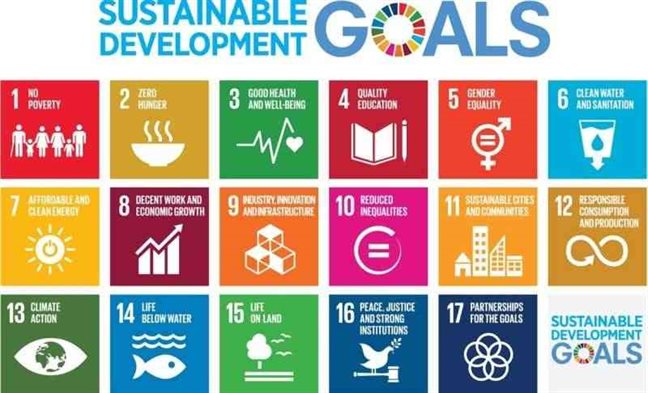24th May, Kathmandu
Kathmandu University To Host Symposium on Artificial Intelligence for Sustainable Development (AI4SD). Kathmandu University is going to organize a one-day symposium on Artificial Intelligence (AI) for Sustainable Development on May 24, 2019. AI is frequently in the headlines these days as the technology that will take over our jobs or even our lives. It could also become a valuable tool in the worldwide efforts to achieve the UN’s Sustainable Development Goals (SDGs). AI is being used in various ways to further societal goals. For example, after the passage of Hurricane Harvey in 2017, many streets in Houston, USA were flooded and impassible but others weren’t.
An AI application that combined satellite imagery with object detection software enabled rescue workers to identify safe escape routes for those trapped by the rising waters. AI-powered object detection is also at the core of a new application that could bring relief to the estimated 250 million people worldwide who are visually impaired, most of whom live in developing countries including Nepal. The free application, which works through a smartphone, uses AI to recognize friends and describe people and specific objects. AI can be used in natural language processing, deep learning applied to traditional databases.
Nepal has a lot of challenges to meet SDG goals. The goal of good health and well-being is particularly well represented in our country. For example, more than 400 million people worldwide affected with diabetes could, in theory, be helped by an AI-enabled wearable device that can already detect potential early signs of diabetes through heart rate sensor data. AI could also analyze mobile phone images to distinguish between a benign skin lesion and melanoma potentially helping millions of rural dwellers of Nepal who have no easy access to dermatologists. While AI’s potential to make a real difference exists, realizing that potential will require a very considerable scaling up of its uses for social good.
- Artificial Intelligence (AI) is highly significant to achieve sustainable development of intelligent buildings in Nepal. On 25 September 2015,193 countries of the UN General Assembly adopted a proposal on Sustainable Development Goals (SDGs) consisting of 17 goals with 169 targets as the 2030 Development Agenda titled “Transforming our world”.
- Population growth in Nepal, built environment degradation, pollution from industrialization and global warming must be addressed. The main aim of this the symposium is to evaluate ways of using AI combined with green architecture to achieve sustainable intelligent buildings of our county which is equally applicable in smart cities.
- Further objectives include examining the role of AI in poverty reduction, quality education, develop a standard of living which directly influences the economic growth of
Nepal and reduce/forecast manmade as well as natural disasters.
Outputs.
The Symposium recommends Integrated Project Delivery and Building Information Modeling. This program is important in that it provides information on intelligent buildings and Smart Cities of Nepal that will combine advanced technology to achieve the SDGs. As a result, it will help to uplift national development.
Target Participants
- Policymakers on IT from Nepal government
- UN representative
- A representative from the National Planning Commission
- Vice Chancellor of Nepal Academy of Science and Technology
- University professors
- Government officials
- IT companies
- Mayors
- KU officials
- Faculties of the Department of Computer Science and Engineering, KU
Theme and Subthemes
AI is the intelligence exhibited by electronic devices and software-driven systems which perceive their environment in buildings and take actions to optimize performance within a given context or constraints. An intelligent building is a dynamic and responsive Architecture that provides every occupant with productive, cost-effective and environmentally approved conditions through a continuous interaction among its four basic elements: places ( structure, facilities); processes (automation, control, systems); people (services, users); and management (maintenance, performance) and the interrelation between them.
Tentative Program Schedule (AI4SD 2019)
Time Descriptions
12:30 – 13:00 Registration
13:00 – 14:00 Opening Sessions
Welcome Speech, Dr. Bal Krishna Bal, HoD, Department of Computer Science and Engineering, KU
Ms. Sunaina Ghimire Pandey, Vice-President, CAN Federation
Er. Ganesh Shah, Former Minister, Nepal Government
Prof. Surya Dhungel, Ph.D., Legal Expert
Dr. Bindu Lohani, President TRC
Prof. Dr. Subodh Sharma, Registrar Kathmandu University
14:00 – 14:30 Sustainable Development Goals: Introduction, Challenges, and
Opportunities: Anand Raj Khanal, Senior Director, Nepal Telecommunications Authority
14:30 – 15:00
Artificial Intelligence in Healthcare: Bipin Lekhak, Shashanka Prajapati and Bijay Gurung Fuse machines
15:00 – 15:30 Artificial Intelligence to achieve Sustainable Development Goals: Prof. Dr. Manish Pokharel, Kathmandu University
15:30 – 16:30 BREAK
16:30 – 18:00 Panel Discussion
Panelists:
1. Prof. Dr. Dinesh Sharma, IoE
2. Dr. Bal Krishna Bal, Associate Professor, KU
3. Ananda Raj Khanal, Senior Director, Nepal Telecommunications Authority
4. Dr. Bishesh Khanal, Senior Senior AI Scientist, Fusemachines, and Senior Research Scientist and President, NAAMII
5. Mr. Kshitiz Rimal, Co-Founder, Artificial Intelligence for Development
Moderator: Dr. Gajendra Sharma, Associate Professor, DoCSE, KU
